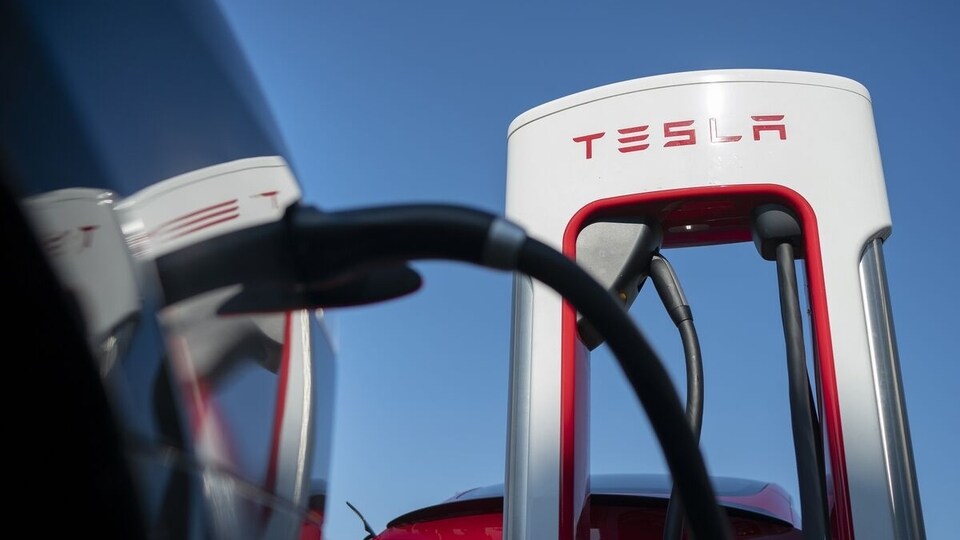Tesla, EV investors face a reckoning
The electric-vehicle boom that spawned multibillion dollar startups overnight and pushed Tesla Inc.’s value into the stratosphere is starting to flounder just a few years after it began.

The electric-vehicle boom that spawned multibillion dollar startups overnight and pushed Tesla Inc.'s value into the stratosphere is starting to flounder just a few years after it began.
A key theme from this earnings season is the waning demand for electric cars. First was Tesla's grim earnings report last week, that was followed by dour commentary from General Motors Co., Mercedes-Benz Group AG, Honda Motor Co. and car-rental company Hertz Global Holdings Inc.
The shift has been sobering for investors, as the valuations of most EV stocks assume a rapid industry expansion. Should that fail to materialize, share prices will likely unwind and many startups won't be able to rely on the capital markets to fund their unprofitable ventures.
“People were always too aggressive on EV adoption,” said Craig Irwin, analyst at Roth Capital Partners. “What we have now is a market adjustment, a recalibration back to reality.”
While Tesla Chief Executive Officer Elon Musk placed the blame on high interest rates, others pointed to demand. GM said it was rethinking goals as EV sales were slower than anticipated, and Honda shelved plans to develop affordable EVs with GM. Mercedes called the EV price war “brutal” and unsustainable, and Hertz said it will slow the pace of buying these cars due to high repair costs.
At the same time, Wall Street analysts downgraded EV-exposed companies such as lithium suppliers and charging station operators.
“EVs had a grace period of initial demand enthusiasm, but that appears to be over,” said Nicholas Colas, co-founder of DataTrek Research.
Cracks Appear
The warning signs appeared early this year as Tesla started aggressively cutting prices in an effort to shore up demand. That sparked a price war as other EV-makers followed, eating into profitability for some carmakers and pushing up already steep losses for others.
But demand stayed weak despite the lower prices, leading some to conclude that the pool of “first-adopter” consumers may have been tapped. Then there are other hurdles like high interest rates and expensive car loans, still inconsistent charging networks and the relatively fewer electric models available.
Even the global political push for cleaner transportation options isn't making a difference for auto companies.
“Consumers have the final word on where pricing has to go,” Colas said. “If demand is already faltering, then margins are going to be tight from here on.”
The stocks have started to reflect those concerns. Tesla shares are down 14% since reporting results on Oct. 18, and Rivian Automotive Inc. and Lucid Group Inc. have both retreated over 10% in the wake. The S&P 500 Index fell 4.4% in the same period. All are trading well below their record highs, touched in late 2021 amid a wider bull-market.
Premium Valuations
Still, Tesla remains one of the most expensive stocks in the S&P 500, trading at roughly 56 times forward earnings compared with the mid-to-high single digit multiples carried by General Motors and Ford Motor Co. Meanwhile, unprofitable startups Rivian, Lucid and latest market darling, VinFast Auto Ltd., command market valuations that are bigger than American Airlines Group Inc. So there's room for these stock to fall further.
“For the smaller manufacturers it will all depend on whether they are able to turn cash flow positive,” said Ivana Delevska, chief investment officer at Spear Invest. “For unprofitable companies, growth is important in the context of operating leverage, but the most important metric is cash flow.”
Rivian and Lucid both price their cars at less than it costs to make them. Without the advantage of scale, they need access to capital to fund operations at a time when borrowing costs are high. Add in flagging demand and it's a deadly combination.
Tesla, with its mammoth $660 billion market capitalization, has a lot at stake, too. Already way bigger than any other carmaker in the world, its valuation leaves little room for error. And as EV demand lags, the pressure on its self-driving software will intensify.
“Tesla's efforts on getting to truly autonomous vehicles is about to become a lot more important,” Datatrek's Colas said. “The business of selling EVs is getting a lot harder.”
Catch all the Latest Tech News, Mobile News, Laptop News, Gaming news, Wearables News , How To News, also keep up with us on Whatsapp channel,Twitter, Facebook, Google News, and Instagram. For our latest videos, subscribe to our YouTube channel.

























